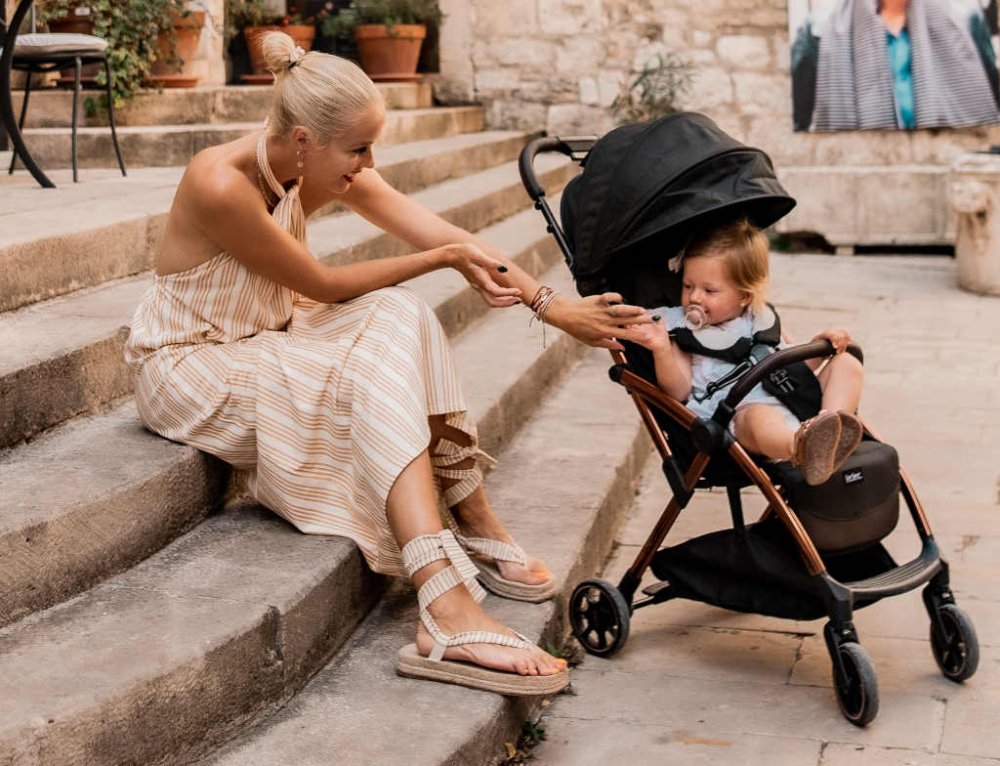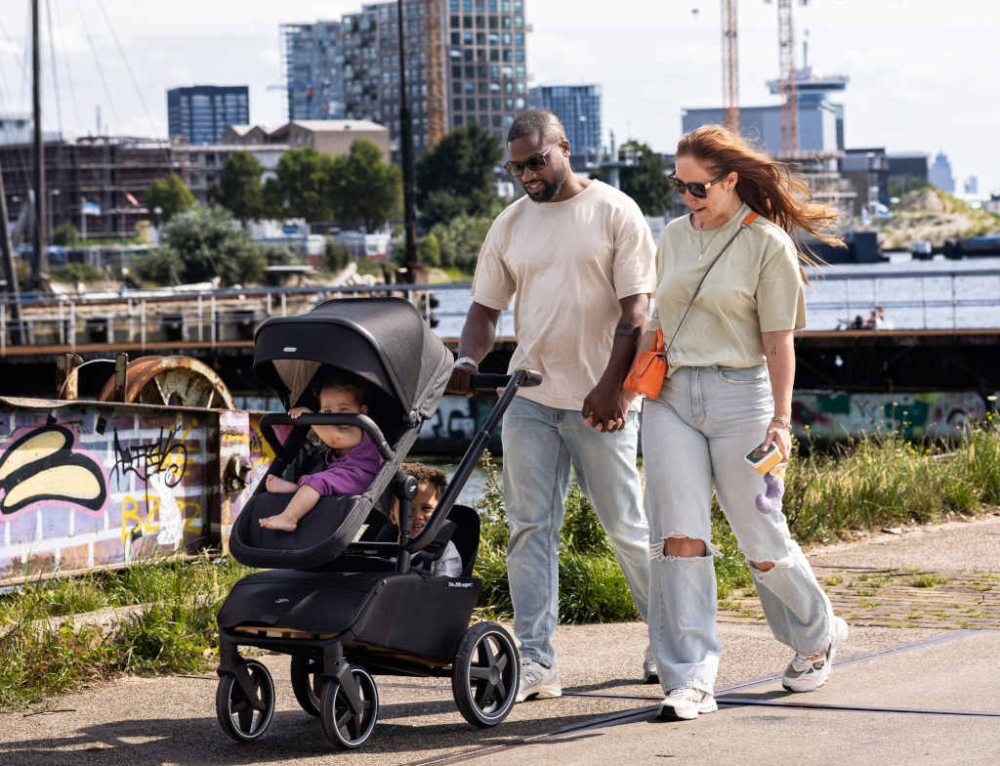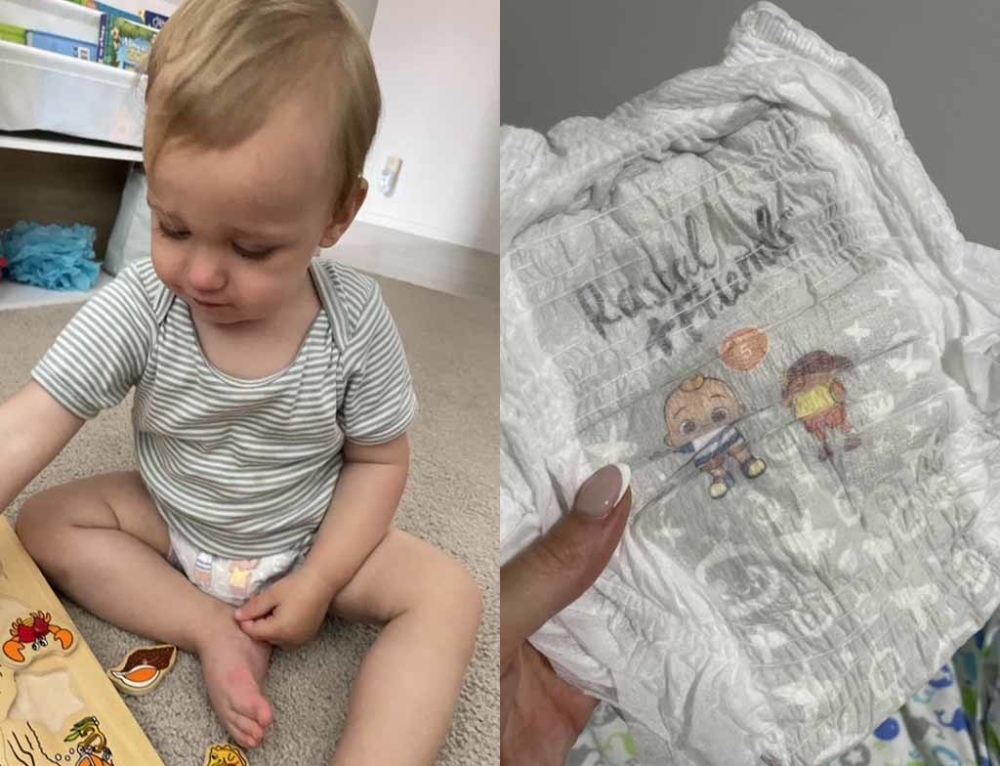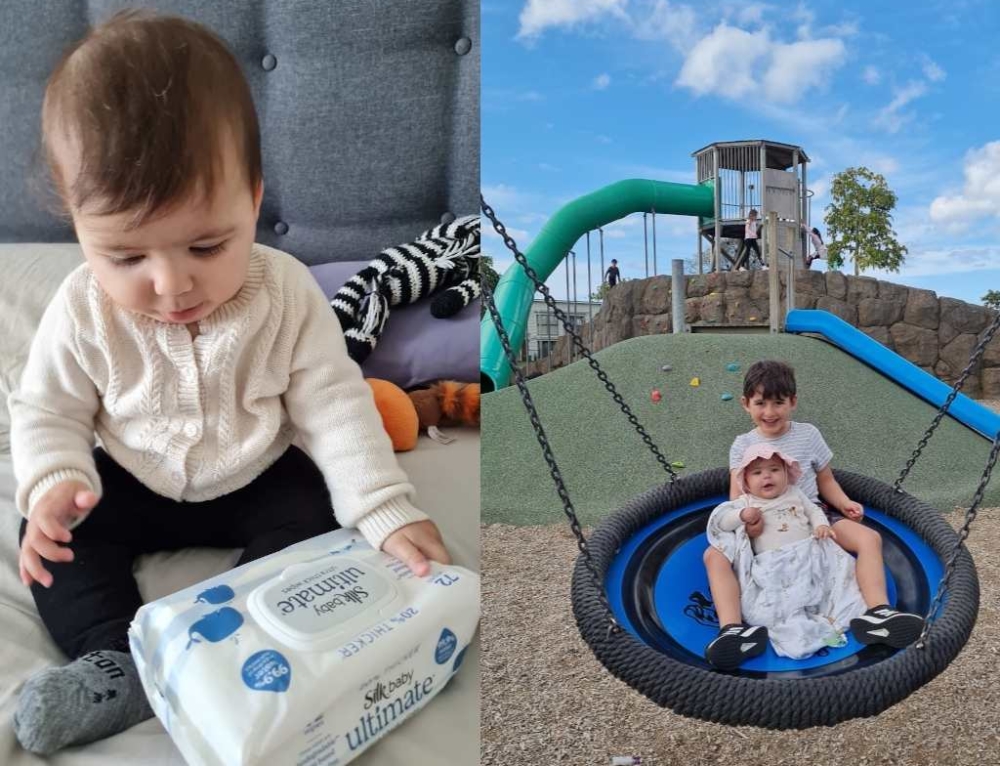Looking after a little helpless baby – and then a highly active toddler – can take its toll on mums’ bodies. All that bending over, feeding, picking up and carrying is an intense daily workout so it’s vital mums look after their backs to stop pain today and problems tomorrow.
Women’s health physiotherapist Brooke Williams of Back in Motion in Melbourne has these must-read tips and information for all mums of littlies.
Back care tip 1: It’s hormonal
The hormones that pumped through your body while you were pregnant to loosen up muscles, ligaments and tendons, can hang around for a few months after the birth.
“After having a baby these muscles are like a swollen and sprained ankle even though you can’t see them, but they needed to be treated carefully just like you would a sprained ankle,” Williams says, which leads on to Tip No.2 …
Back care tip 2: Save sit-ups for later
Here’s a good as excuse as any to avoid these tedious exercises – they work the wrong muscles. And in those first few weeks or months doing lots of sit-ups can cause more harm than good, says Williams, who adds this scary deterrent: “This exercise places too much pressure on the pelvic floor which can increase the chances of both incontinence and getting a prolapse.”
Back care tip 3: Think about your lifting
You could be bending over and picking up your 3-5kg bub (soon to become a 15kg toddler) 30-plus times a day in those first few months. Most women’s bodies are not used to such a labour-intensive job so all this stooping, bending and carrying can have a huge impact on your already over-loose back and tummy muscles.
This is Williams’s advice: “Always bend your knees to go down to bub’s level – our leg muscles are large and strong and better built to cope with bending and carrying than our back muscles. Encourage a toddler to stand on a chair, step or couch so you don’t have to bend down as far.”
Back care tip 4: Squeeze and lift before you lift
Never forget your pelvic floor – you’ll be glad in the future if you care for it now, considering one in three women end up with incontinence issues after having a baby. Williams advises that mums get into the habit that before you pick up anything or anyone, you pull in and up your pelvic floor muscles and brace your tummy muscles.
Back care tip 5: Best exercise for breastfeeding mums
Holding and feeding bub for long periods can start to cause some pain and tension along your thoracic spine (i.e. middle of your back). Here’s Williams’s best exercise to relieve any discomfort: Roll up a towel lengthwise into a long cylinder and lie on it so it runs down your spine. Rotate your knees from side to side.
Back care tip 6: Be fit and strong in pregnancy
In an ideal world, we all would have been building up our core strength and stamina during pregnancy. Williams says that going into motherhood strong and fit certainly provides a headstart. “It would be great if pregnant women could do some pregnancy-related exercise classes or at least keep fit with regular walking,” she says.
Back care tip 7: Rethink those bending jobs
For example, don’t reach in to get bub out of a cot, but lower the side of the cot first. Don’t spend minutes bending over bub in her carseat fiddling with the endlessly sticky buckle, kneel on the seat next to bub or, if possible, on the floor in front. If there’s ever a way you can get out of bending from the waist – and there nearly always is – do it.
Back care tip 8: Do pilates
This style of gentle exercise has been found to do wonders for rebuilding and strengthening mums’ core. Williams advises mums attend a physio-run class aimed at new mums to start with.
Back care tip 9: Don’t ignore problems
Back pain can quickly become a chronic issue. During these early days of being a mum when our core strength is compromised, we can sustain long-lasting issues which can flare up for years. Continence problems (that is, bladder leakage) is also associated with this whole part of our bodies.
If you’re at all worried, have any pain or still have problems with continence after six to eight weeks, see a women’s health or continence physio sooner rather than later. Physiotherapy New Zealand can help you find the right practitioner for you.
Remember, it’s just as crucial that mums look after themselves too because you’re doing such an important and indispensable job.
This article was written by Fiona Baker for Kidspot Australia and has been reproduced here by permission. Sources include Back in Motion.
Which parenting activity do you find to be most stressful on your back?
See more:







Sitting on the floor too long playing toys hurts my back, v and riding scooters! All in all my back has never been there same after number 2 but I’ve learnt to adjust tasks to make it easier
I’ve heard about Pilates helping for back problems and even for better body form. I’ve always wanted to try this and not just for new moms but overall care of our bodies.
Great read for new mums with newborn’s as there honestly is more back straining then you would have ever thought. I found the thing that used to strain my back the most was carrying baby out and about in the capsule. My lordy that hurt my back. Also breast feeding was second in line for hurting my back and I needed to get myself a pillow to put in behind to stop the straining.
I injured my back when I was 15 and have a permanent disability because of it. I can still do most things but have to be more careful when it comes to lifting etc. When I was pregnant both times, I do remember my back getting pretty bad towards the end of pregnancy and had to be super careful.